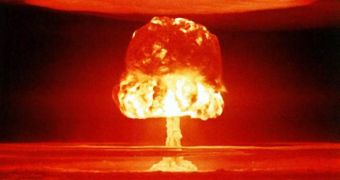This Monday, the first meeting of the Commission on Nuclear Non-proliferation and Disarmament took place at the Intercontinental Hotel in Sydney, Australia. Gareth Evans, the co-chair of the commission, former Australian foreign minister between 1988 and 1996, and President of the International Crisis Group at Brussels, stated that the whole world was at high risk of a Hiroshima-like or even worse incident happening again, because of possible accidents or poor calculations occurring during the worldwide disarmament process.
As a more specific example, Evans stated that more than 16,000 atomic warheads were deployed on a global scale without proper control measures being taken. Besides the nuclear arsenal, there is also a high threat level deriving from the use of devices such as the rudimentary “dirty bombs” that end up in terrorists' hands. These bombs could lay waste to entire cities, and cause the death of over 100,000 people. Thus, the committee has assumed the bold and difficult task of reducing the nuclear weaponry threat to the minimum. “If we don't get this right, we face a catastrophe on a massive scale,” Evans stated.
According to him, the disarmament problem has been overshadowed by the international financial crisis and global environment issues, which have recently caught the public attention. Moreover, the US and Russia's reduced efforts and support in this matter since the Cold War ended are not helping either. Quite the opposite, actually, considering the recent signing of an arrangement between the US and India a few month ago, which recognized the latter as a major nuclear power. Israel and Pakistan have also secured a nuclear arsenal outside international regulations, which makes it even more difficult for the commission to prevent other countries from doing the same in the future.
A top priority for the committee will be the major nuclear weapons accumulation and development efforts made by Iran under the rule of Mahmoud Ahmadinejad. The problems addressed and the conclusions drawn from this meeting will pave the way for a world conference on disarmament and non-proliferation issues, which will be held in 2010.

 14 DAY TRIAL //
14 DAY TRIAL //